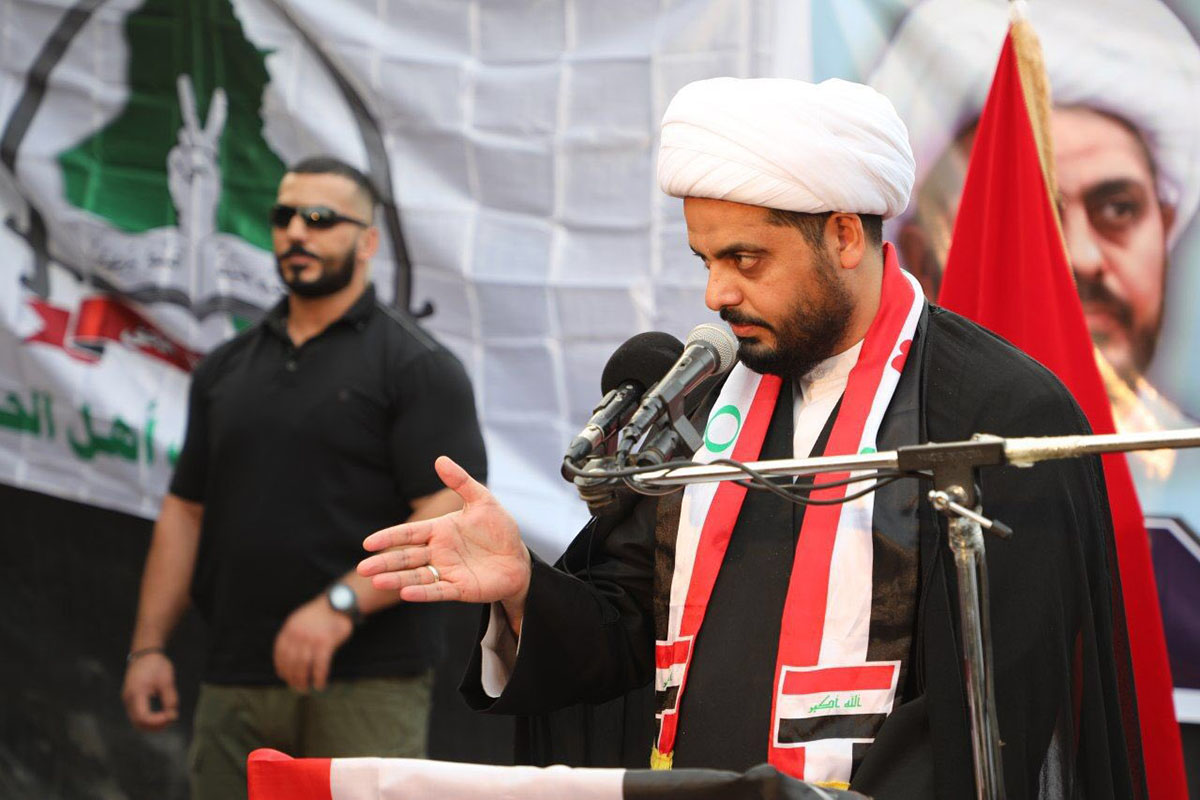‘Dark nights’ are falling upon US troops in Iraq: Shia militia leader
The leader of the Iranian-backed Shia militia Asaib Ahl al-Haq on Sunday threatened US troops who are currently in Iraq training and supporting the Iraqi military forces in the ongoing fight against the Islamic State (IS).
In a series of tweets on his personal Twitter account, Qais al-Khazali, the leader of Asaib Ahl al-Haq, claimed the US’ presence in Iraq “serves an Israeli project,” and vowed to target them if they did not leave the country.
“America, whether you take it as a warning or consider it a threat, we are a people who do not accept the presence of your troops on our soil,” Khazali said.
“The US is deluded by thinking they are capable of staying in Iraq against the will of Iraqi people,” he added. “We will turn Iraq into a dark night over [US troops].”
In another tweet, Khazali emphasized that his armed group rejected the presence of US troops or any other foreign military in Iraq.
“For the sake of our national sovereignty and a guarantee of Iraq’s security from the projects which aim at dividing the country to serve an Israeli project, we totally reject the continued US presence after the defeat of [IS],” Khazali affirmed.
He also noted that the Iraqi Air Force has F-16 fighter jets, so they should not rely on US warplanes.
Several other Shia militias under the umbrella of the Iranian-backed Hashd al-Shaabi have previously expressed their opposition to the presence of American troops in Iraq, vowing to target them if they stay in the country.
US forces are “in Iraq at the invitation of the Iraqi government,” State Department Spokesperson Heather Nauert explained, as Kurdistan 24 asked her to respond to those statements.
There are over 5,000 US troops in Iraq. The US-led Coalition against IS last week stated its focus in Iraq would shift from combat operations to sustaining military gains against the extremist group.
Despite threats from the Shia militia groups, the coalition statement revealed its troops would remain in Iraq as IS extremists “continue to pose a threat” to the country’s security and risk transition back into an insurgency.
Source: Kurdistan24

